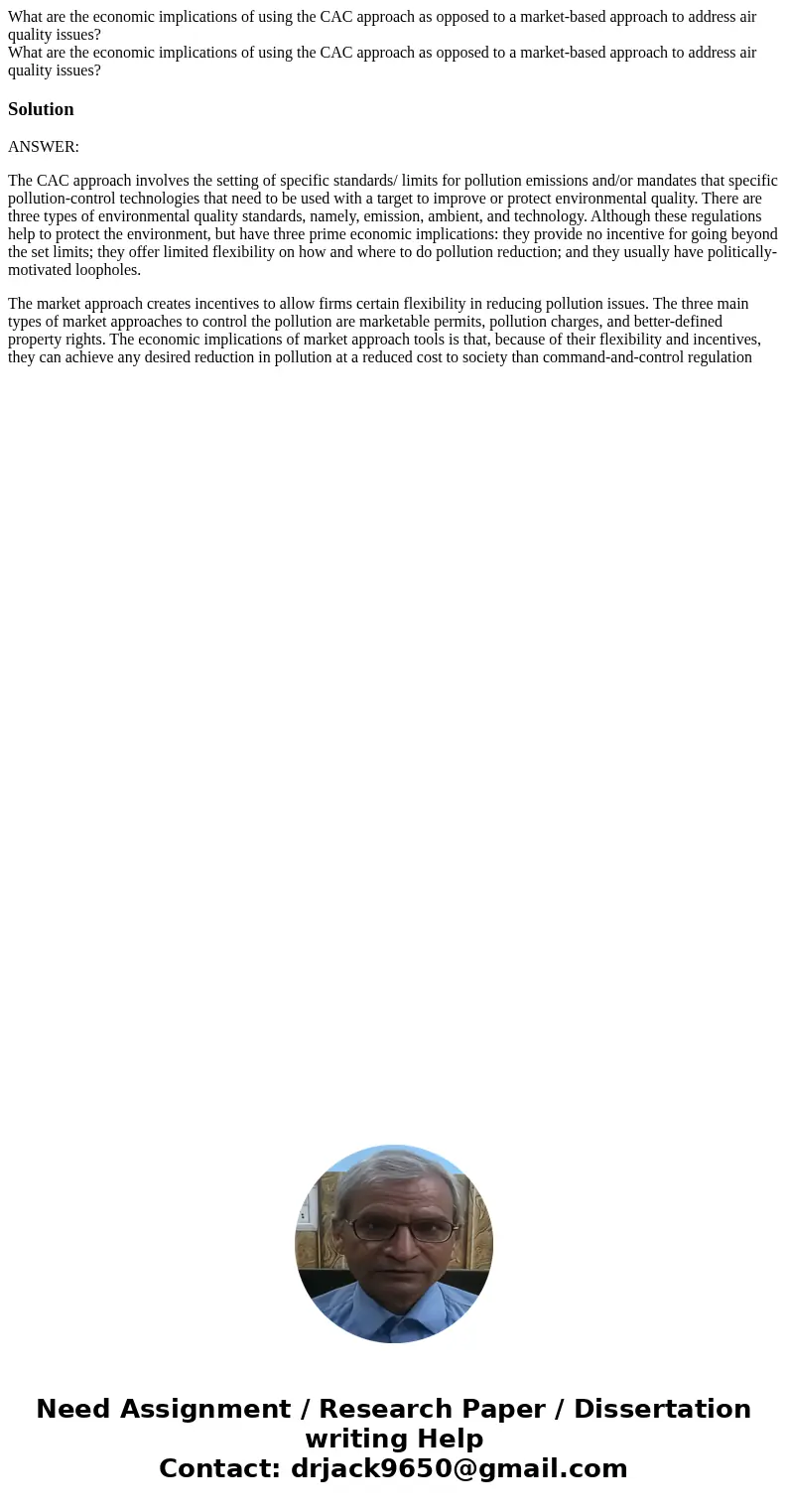What are the economic implications of using the CAC approach
Solution
ANSWER:
The CAC approach involves the setting of specific standards/ limits for pollution emissions and/or mandates that specific pollution-control technologies that need to be used with a target to improve or protect environmental quality. There are three types of environmental quality standards, namely, emission, ambient, and technology. Although these regulations help to protect the environment, but have three prime economic implications: they provide no incentive for going beyond the set limits; they offer limited flexibility on how and where to do pollution reduction; and they usually have politically-motivated loopholes.
The market approach creates incentives to allow firms certain flexibility in reducing pollution issues. The three main types of market approaches to control the pollution are marketable permits, pollution charges, and better-defined property rights. The economic implications of market approach tools is that, because of their flexibility and incentives, they can achieve any desired reduction in pollution at a reduced cost to society than command-and-control regulation

 Homework Sourse
Homework Sourse